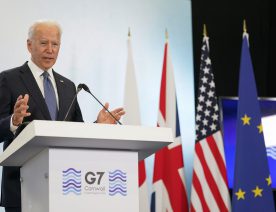
February 23, 2022
Most Americans are paying at least some attention to the increased tensions between Russia and Ukraine. While most of the public thinks the United States should have a role in the situation, they are more likely to say it should be a minor role rather than a major one.
About 4 in 10 Americans approve of the way President Joe Biden is handling foreign policy and the United States’ relationship with Russia. Fifty-three percent are concerned that Russia’s influence around the world poses a threat to the United States.
Only about a quarter have a great deal of confidence in the U.S. government’s intelligence agencies. More than 4 in 10 have a great deal of confidence in the military, although confidence is declining.
Forty-six percent have heard or read a lot about the military buildup on the Ukrainian border, and 29% have heard or read some. People who have been paying at least some attention to the situation in Ukraine are more inclined to support a role for the United States: 32% say it should be a major role and 51% think it should be a minor one. Among the 24% who are paying little or no attention to the tensions between Russia and Ukraine, 34% think the United States should not play a role in the situation in Ukraine.
Most Democrats and Republicans agree that the United States should only take on a minor role in the situation in Eastern Europe, yet Democrats are slightly more likely than Republicans to think the United States should take a major role.
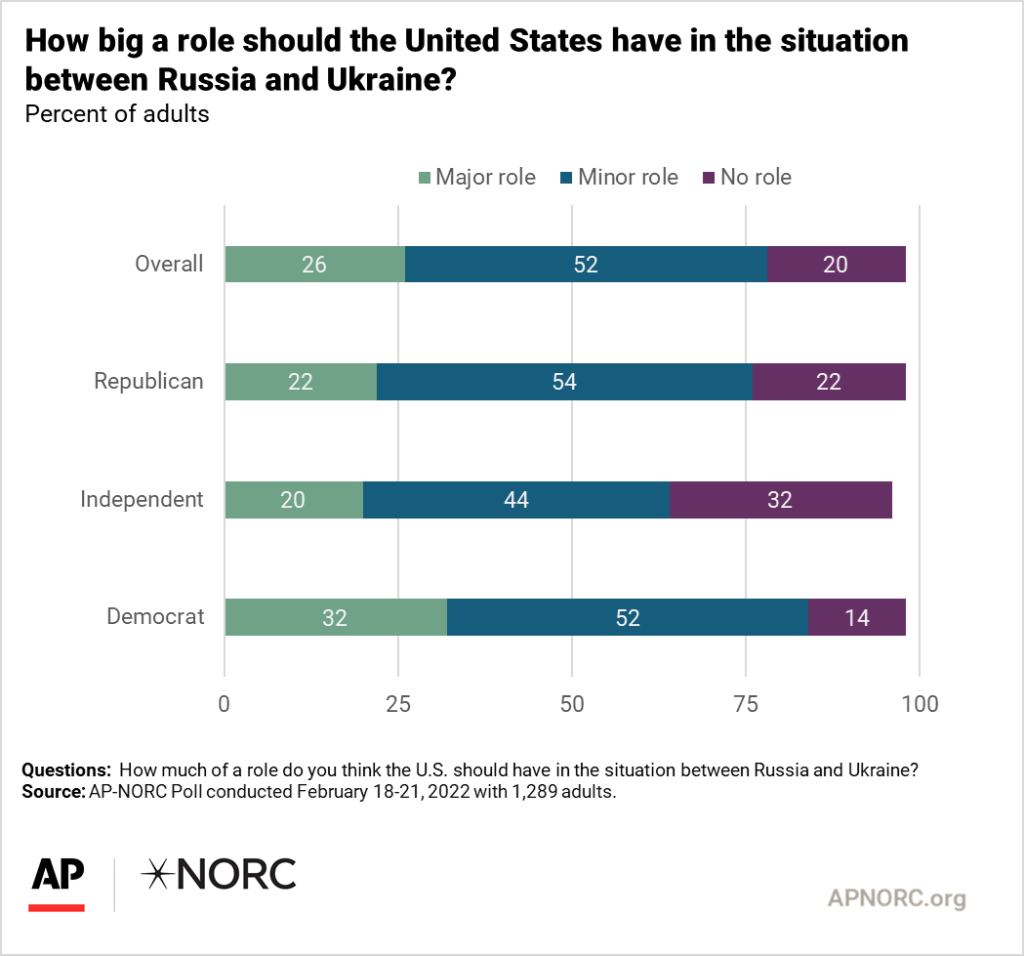
With Russia amassing troops on the Ukrainian border, Americans are more concerned about Russia’s influence around the world than they were in August 2021. In August, 45% were very or extremely concerned about Russia’s influence, including 41% of Republicans and 51% of Democrats. Now, 53% are very or extremely concerned about Russian influence.
But Americans continue to be more concerned about the threat to the United States from the spread of misinformation, cyberattacks, and extremists based within the United States.
Partisan divisions remain with Democrats most concerned about climate change, misinformation, and the threat of domestic extremists. Republicans worry more than Democrats about illegal immigration and China’s influence.
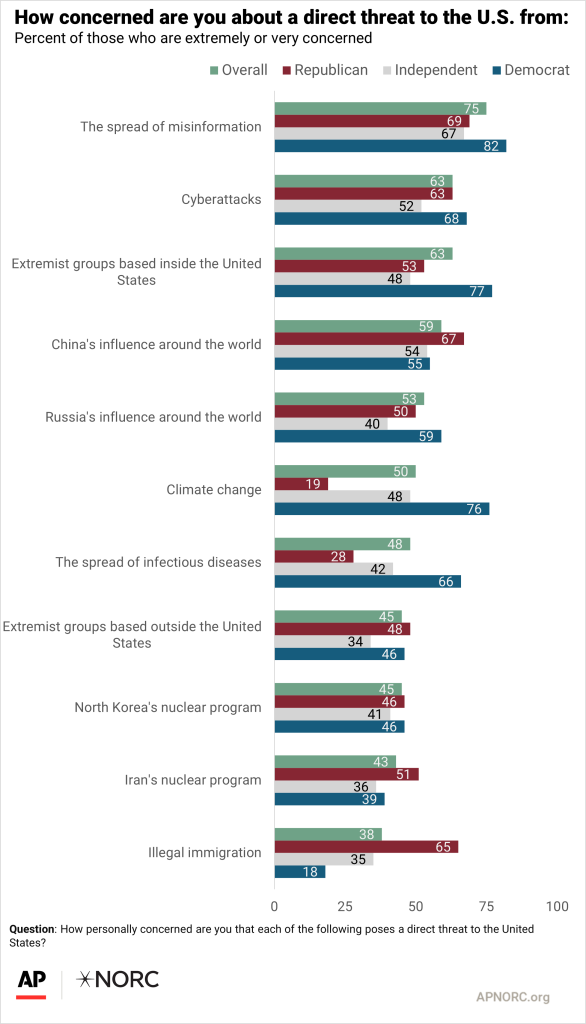
Ahead of Biden’s meeting with Russian President Vladimir Putin in June 2021 about half of the public approved of both the U.S. president’s handling of relations with Russia and his approach to foreign policy in general. Now, more than half of Americans disapprove of how Biden is dealing with foreign policy and the U.S. relationship with Russia. While views of the president’s foreign policies are strongly influenced by party identification, Republicans have become slightly more negative since June and Democrats are slightly less positive.
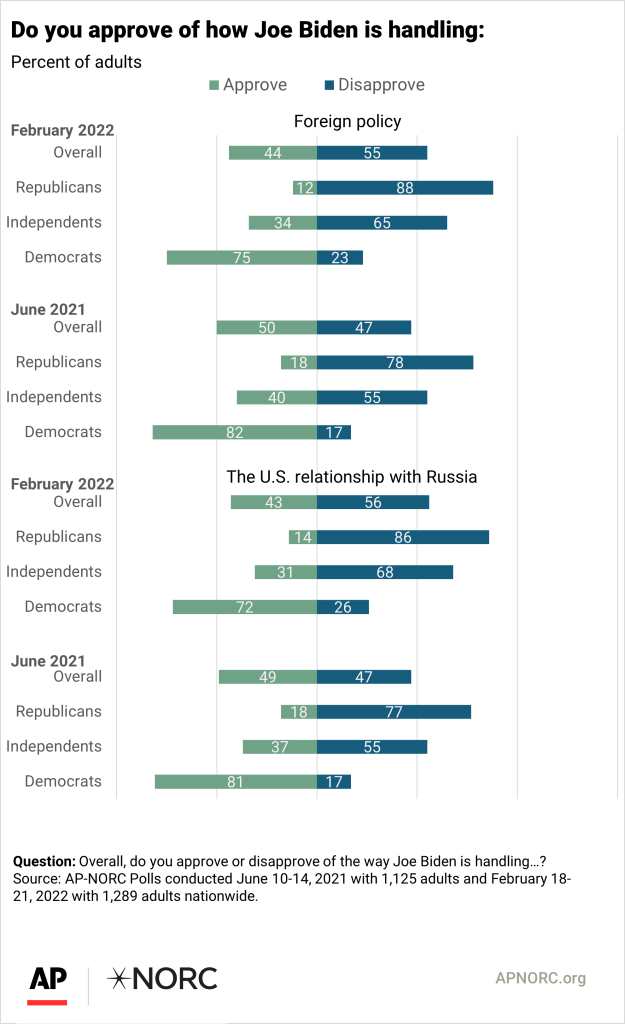
The public has lost some trust in the people who oversee the military. In September 2020, 53% of Americans had a great deal of confidence in those in charge of the country’s armed forces. In the current survey, 42% have a lot of confidence.
Confidence in the country’s intelligence gathering agencies remains low: only 23% have a great deal of confidence in the people who run the country’s intelligence agencies in the latest poll, the same as in September 2020.
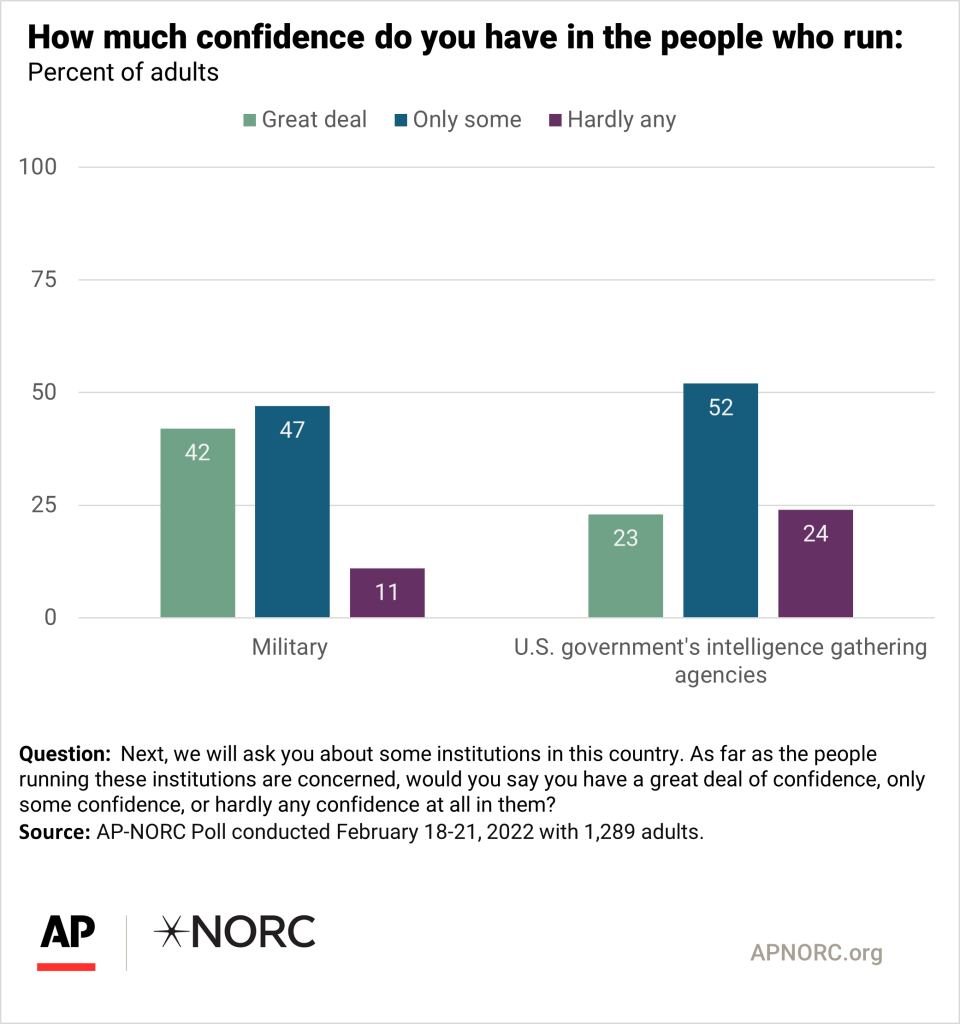
The nationwide poll was conducted February 18-21, 2022 using the AmeriSpeak® Panel, the probability-based panel of NORC at the University of Chicago. Online and telephone interviews using landlines and cell phones were conducted with 1,289 adults. The margin of sampling error is +/- 3.7 percentage points.
- Suggested Citation: AP-NORC Center for Public Affairs Research. (February 2022).“America’s role in the Russia and Ukraine situation” https://apnorc.org/projects/americas-role-in-the-russia-and-ukraine-situation/





